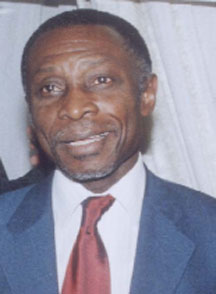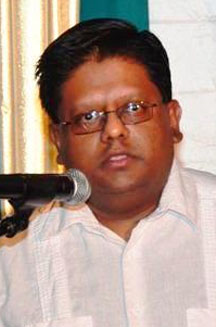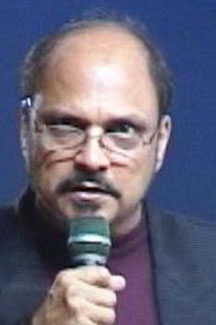APNU MP and Shadow Finance Minister Carl Greenidge yesterday questioned the propriety of a $29.1 million Ministry of Health allocation in the 2012 estimates appearing as money already spent, since it had been voted down by the opposition earlier in the year.
The allocation, for land and site preparation for the India-funded specialty hospital, was flagged by the opposition during the consideration of Financial Paper 7 of 2011, after it was noted that $150 million was allocated for the project last year.
Speaker of the National Assembly Raphael Trotman had advised that the Minister of Finance Dr Ashni Singh may resubmit those items that were voted against at a subsequent date.

“Not only was the amount of $150 million budgeted for the project [in the estimates of 2011], but the supplementary paper said that the $150 million was spent and it requested $29.1 million which this House voted against,” said Greenidge. “How could an unauthorised amount [show up as expenditure],” the former Finance Minister quizzed Singh.
Singh, however, said there is an authority derived from Article 220 of the Constitution and reinforced by Section 41 of the Fiscal Management and Accountability Act and doubly reinforced by the relevant Standing Orders that authorises him to make withdrawals from the Contingencies Fund. “That Contingencies Fund then requires ex-post imprimatur of the National Assembly, hence the submission of the Financial Paper.

The entire assembly is aware, of course, of the four items of Financial Paper No. 7/2011 that are yet to receive the ex-post imprimatur of the National Assembly. But that does not alter the fact that expenditures of $29.1 million were incurred,” he said.
The Minister explained that the $150 million was foreign-funded, as the Indian Government was providing the finances for the specialty hospital. But he said that the $29.1 million was locally-funded.
But after the Minister’s explanation, Speaker Trotman said that he was not clear whether he was in a position to make a ruling. “I will have to seek advice whether or not… it is a matter within the jurisdiction of the Speaker or the Parliament to have an item stated as an expenditure that has been spent,” Trotman said.
However, Greenidge took to his feet to clarify that the point he was making is not whether or not the Minister is empowered to make a grant. “It is about Parliament having rejected it. The matter was considered and it was rejected,” he said.

Trotman subsequently directed that the House proceed with the consideration of the estimates while he sought advice on the issue.
Meanwhile, the Committee of Supply approved the estimates for the Ministry of Health, the Ministry of Education, the Ministry of Amerindian Affairs and the Ministry of Home Affairs, after consideration yesterday.
The line of questioning for many of the budget heads had to do with clarification sought over staffing strength and why there was need to resort to contracted employees. In the case of the Health Ministry, Minister Bheri Ramsaran said that persons have an option to either be on the traditional public service establishment or be employed on a contractual basis.
Further, Ramsaran debunked the assertion by many members of the opposition that because a person is a contracted employee, he or she is earning a super salary. He pointed to cases where persons such as drivers and others earn about $50,000 and who are nonetheless classified as contracted employees.
Minister of Education Priya Manickchand answered questions about procurement of motor vehicles for her Ministry.
She said that prior to commencing the process of acquiring a new vehicle, the ministry would conduct its research as to the type of vehicle needed and an idea of the average price.
In response to a question from Desmond Trotman of APNU, Manickchand said that the ministry does not solicit quotations until there has been approval given for the vehicle to be purchased. Trotman asked how it is that the House could trust the reliability of the cost given for a vehicle when there is no quotation sought.
In helping Manickchand address the query from Trotman, Finance Minister Dr. Singh said, “When we decide what we need, we look at an average price and this goes to the Ministry of Finance. We get an idea and then we get an estimate of the cost of the vehicle until the budget has been passed,” he said.




